Parliamentary News
DESNZ, DSIT and DBT
No it’s not an attack of the sneezes, it’s the PM’s reorganisation of the Government departments. Gone is the recognisable department of Business, Energy and the Industrial Strategy. Instead it has morphed into three:
- Department for Energy Security and Net Zero (DESNZ)
- Department for Science, Innovation and Technology (DSIT)
- Department for Business and Trade (DBT),
And the Department for Culture, Media and Sport (DCMS) has been refocused (more on this below)
DSIT: The reformed ex-BEIS departments clearly reflect the Government’s priorities and direction of travel over successive Prime Ministers. The agenda for an innovation economy and translating research into business gains is clear. Of course, underlying it all is the need to improve the UK’s economic success trajectory.
The key change to HE policy relevance is the DSIT which once again brings a more coherent approach to research and innovation. The positioning means R&I is siloed away from Education, however, ex-HE Minister Michelle Donelan will head up this department as Secretary of State bringing her expertise and adherence to cross-departmental party lines with her.
Formally the DSIT’s responsibilities include:
- Optimise R&D investment to support areas of UK strength,
- Increase the amount of private R&D funding for innovation purposes
- Promote a diverse research and innovation system that connects discovery to new companies, growth and jobs – including by delivering world-class physical and digital infrastructure (such as gigabit broadband ), making the UK the best place to start and grow a technology business and developing and attracting top talent
- Focus on innovation in public services (NHS, Schools) and develop STEM capability
- Strengthen international collaboration and ensure our researchers are able to continue to work with leading scientists in Europe and around the world.
- Deliver key legislative and regulatory reforms to drive competition and promote innovation, including the Data Protection and Digital Information Bill, the Digital Markets, Competition and Consumer Bill and our pro-innovation approach to regulating AI. Also to push the Online Safety Bill through the legislative process.
ARIA, UKRI, the Met Office, the UK Space Agency; the Intellectual Property office, and Building Digital UK will all sit under the new Department (which will devolve their funding settlements). As will GO Science and the Council for Science and Technology.
DSIT will progress the Online Safety Bill and Data Protection and Digital Information Bill that were previously led by DCMS and under Donelan’s stewardship.
George Freeman (previously science minister) will retain a role in the department and Paul Scully (previously Under-Secretary of State for tech and the digital economy) also joins the brief. This smooth transition of recently experienced ministerial staff and priorities suggests some stability for the new department and that Rishi will expect his team to hit the ground running, particularly with the legislation already passing through the Houses. Emphasising this are the top level civil servants previous Digital and Media Director-General, Susannah Storey, and the previous Director of Media and the Creative Industries, Robert Specterman-Green.
The DSIT’s website is already up and running – you can view it here (and spot the stories they’ve moved across from BEIS).
DCMS: The slimmed down DCMS moves focus to support the UK’s strengths in culture, media and sport but is no longer responsible for digital policy. This includes:
- updating the UK’s broadcasting and media system,
- increasing investment in grassroots sports and delivering reforms to football governance—a Football White Paper is expected soon
- and completing the long-awaited review of the Gambling Act.
Former DLUHC minister Lucy Frazer leads the lean and mean DMCS. Supporting here are Julia Lopez (previous Minister of State for Media, Data and Digital Infrastructure), Stuart Andrew (previous Under-Secretary of State for Sport, Tourism and Civil Society and the Minister for Equalities), and Lord Parkinson (previously a DCMS Under-Secretary of State) looks to be tipped for the Government’s Lords Spokesperson for both DCMS and DSIT.
Dods says: Removing management of digital policy, including the complicated online safety legislation, could give DCMS more bandwidth to concentrate on other areas where it has been slower than expected to deliver. But time will tell if that proves to be an effective division of labour given the importance of digital to broadcasting and media. Questions remain about the outlook for the Media Bill since the Government ditched plans to sell Channel 4.
Contact the policy team if you’d like more information on the Dept for Energy Security and Net Zero or the Department for Business and Trade. Alternatively you can read each Department’s priorities here.
Overall: Overall the reorganisation seeks to provide focussed teams in key policy areas rather than the larger broad departmental remits of recent years. With the election looming Rishi may be hoping these teams fly in and make quick wins that bode well for the Conservatives in the polls. A danger for Rishi is the departments overlap unhelpfully or further constrain policy progress and policy direction due to their new siloed structure. As always there will be competition for the Treasury’s resources and much may come down to budget. The continuation of several key ministers into the new departments may also signal that Rishi believes these personalities will toe the party line and put career enhancement in.
Party plans
Politically the next general election is continually on the mind of all the parliamentary parties. Labour have been upfront about their campaign recently in their attempt to woo Scottish voters away from the SNP since Nicola Sturgeon announced she would step down.
Labour has also shown more willing to be drawn on their potential manifesto content through media appearances and comment. This week they published their new ‘national missions’ for the UK upon which their manifesto priorities will hang. They are:
- Economy: To deliver the highest sustained growth in the G7.
- Health: Build an NHS fit for the future – through science and innovation, and reforming the social care system.
- Crime: Make Britain’s streets safe – reforming police and criminal justice system, tackling VAWG, stopping criminals getting away with it.
- Education: Break down barriers to opportunity – reforming childcare and education, raising standards, preparing young people for work and for life.
- Climate: Making Britain a clean energy superpower.
And a selection of snippets from the accompanying statements:
- Everything will not be fixed by simply spending more money.
- Growth must be powered by good jobs and productivity in every part of the country.
- Pledged to reform apprenticeships, and a new childcare system.
- Will embrace technology, innovation and science, will reform the planning system to help businesses.
- Will use levers like procurement to build up supply chains to protect from security threats.
- For the coming months, the whole Shadow Cabinet will be looking at how they can bring these missions alive, as well as how to make them “vehicles of hope”.
STEM returner campaign
On the International Day of Women and Girls in Science, the government launched a pilot initiative to bring people back into STEM careers. STEM ReCharge provides support and training to technology and engineering returners (and their employers) in the Midlands and the North of England. The scheme will be run by Women Returners and STEM Returners and target those who have taken lengthy career breaks e.g. for caring responsibilities. The pilot will hit several key policy areas by bringing people back into the workforce, boosting numbers of STEM workers and plugging industry skills gaps, and increasing diversity in this key UK industry.
Research
- The ARIA framework has been published setting out how ARIA will operate and its relationship with the new Department for Science, Innovation and Technology (DSIT).
- Professor Dame Angela McLean has been appointed as the new Government Chief Scientific Adviser (GCSA). She’s the first woman to hold the role and will take over from Sir Patrick Valance when his term ends on 1 April. Angela was previous the CSA for the Minister of Defence. Here’s an explainer if you’re unfamiliar with the role:
- The GCSA provides independent scientific advice to the Prime Minister and members of cabinet, advises the government on aspects of policy on science and technology and aims to ensure the quality and use of scientific evidence and advice in government policy making.
- The GCSA is also Head of the Government Science and Engineering Profession and is part of the executive team of the newly formed Department for Science, Innovation and Technology.
- Chief Scientific Advisers (CSA) and the Government’s Chief Scientific Advisers work three days per week for their Government department, with the remaining two days to continue their substantive role in academia or industry. Angela is a Professor of Mathematical Biology at Oxford University. Her research interests are the use of mathematical models to aid understanding of the evolution and spread of infectious agents. She is also interested in the use of natural science evidence in formulating public policy.
- The National Centre for Universities and Business (NCUB) announced the establishment of a Taskforceto tackle barriers to mobility of research staff between universities and businesses. The Taskforce will explore how much researchers move across sectors, demonstrate the benefits of mobility, identify obstacles limiting movement, and make best practice recommendations. The Taskforce is expected to report in the summer.
Research England Executive Chair Professor Dame Jessica Corner said: Without movement both ways between industry and academia, we risk stifling creativity and innovation in both sectors. We also limit the potential to increase R&D in the UK and the related growth and productivity gains from this, as well as broader societal prosperity.
If we are to promote economic and social growth, then we need to make the most of the talented individuals we have. Improving mobility of people will improve the flow of knowledge and innovation to where it is most needed. I look forward to hearing how businesses and universities can address their barriers and enablers.
R&D Fraud – legislation underway
- The Economic Affairs Finance Bill Sub-Committee published Research and development tax relief and expenditure credit. The Sub-Committee’s inquiries (apart of legislative scrutiny) focused on technical issues of tax administration, clarification, and simplification rather than on rates or incidence of tax. It covered the escalation in the abuse of R&D tax relief which has led to a loss of revenue (£469 million). The Bill proposes legislative changes to combat this abuse. You can read all 56 recommendations from page 64 of the report.
- Lord Leigh of Hurley, Chair of the Economic Affairs Finance Bill Sub-Committee, said: The Government should use its review of R&D tax relief as an opportunity to look beyond the initial measures within the draft Bill and hold an open-ended consultation on how the scheme can be improved. This will be integral to future proofing the UK’s competitiveness as a hub of R&D activity.
Horizon – delayed; Plan B – delayed
- Research Professional are frank about the possibility of either Horizon affiliation or Plan B happening anytime soon:
- Science minister George Freeman…took to social mediato call for the need “to get on and deploy the £4.5bn we would have received from Horizon this Comprehensive Spending Review”. He suggested that the much-vaunted plan B be put in action while the UK continues to push for association to the EU’s R&D programme.
- Freeman warned that if the money was not used, the business department would have to bid again to the Treasury for the £4.5bn. The minister described plan B as a carefully designed “one-off boost to our global R&D” while the UK prepares for association with Horizon.
- “Waiting for the EU to unblock us,” Freeman said, would result in “continued uncertainty” and a “damaging narrative of decline”, as well as a “growing brain drain” and “loss of vital time in the increasingly competitive global race for science and technology leadership”. Freeman’s avowed frustration is not quite the boosterism of science superpowers and the innovation nation we have heard so often from ministers.
- Are we any closer to association or plan B? Even if prime minister Rishi Sunak were to secure a deal with the EU over the Northern Ireland protocol, he still has to sell it to Ulster unionists and the European Research Group of Eurosceptic Tory MPs.
- Freeman’s comments on Sunday do not suggest that there is agreement in government on when to press the button on plan B. It is almost as if Sunak and chancellor Jeremy Hunt would prefer not to spend the money—funny that.
Other news
- Open data: Wonkhe blog: Daniel Keirs makes the case that the future of research data will be open and available, but it will require sustained commitment and collaboration from the research community.
- Research hub: The Department for Transport has launched an application process to become a new research hub to help tackle decarbonisation and improve transport resilience. Decarbonisation Minister, Jesse Norman, pledged £10 million in funding for the centre, which will establish a UK centre of excellence for transport innovation. Currently, transport accounts for 27% of the UK’s emissions and the government aim for the Net Zero Transport for a Resilient Future Hub to drive decarbonisation solutions, such as greater use of recycled materials and reducing the carbon footprint of repairs and maintenance. The hub will also develop and implement innovative ideas to ensure future transport is resilient and meets the challenges of climate adaption, such as changes to weather and water levels. It will focus on the UK’s transport sector’s needs over the next 25 years as the government works to meet its 2050 net zero goals, helping to ensure the sector can build UK skills, jobs and innovation. The hub is funded at 80% from Government and 20% from the winning institution.
- Research impact: If you missed January’s HEPI webinar discussing open access and spreading the impact of research you can watch the recording here.
- REF impact case study data: The British Academy and the Academy of Social Sciences have launchedresearch into what REF impact study case data can tell us about the contribution of the arts, humanities and social sciences to the wellbeing of society, culture and the economy. The research is intended to provide a robust evidence base on which the higher education sector and policymakers can build to articulate the value of research and its impact on society (Wonkhe).
- HEPI and UPP Foundation’s recent public opinion polling, Public Attitudes to Higher Education 2022, finds:
- 77% of respondents agree that universities are important to research and innovation
- 57% agree universities are important to the UK economy as a whole.
- Support for public investment is also high – half of people (50%) agree that university research should receive funding from the taxpayer.
Parliamentary Questions
Regulatory
The OfS launched a consultation to tackle harassment and sexual conduct in HE. They propose a new condition of registration which would:
- introduce mandatory training for students and staff, including bystander training for potential witnesses to raise awareness of and prevent sexual misconduct
- require a provider to publish a ‘single document setting out how the will make a significant and credible difference in tackling harassment and sexual misconduct, also how to report cases of harassment and sexual misconduct, and explain how students will be supported through the process
- ban the use of non-disclosure agreements in cases of harassment and sexual misconduct, and any enforcement of existing non-disclosure agreements.
Universities will also be required to comply with the requirements in a way that is consistent with principles for freedom of speech within the law. Press release here.
Instead of a new register the OfS is also considering an outright ban on relationships in some circumstances.
The topic has sparked much debate on social media: the 1752 Group are a campaign group in this area. They suggest that while the steps taken by the OfS will make people, especially survivors of abusive relationships feel better, and may discourage some behaviour that is inappropriate, and prohibiting (if they go for that option) sends a clear message on boundaries, these changes won’t “fix” anything because the worst abusers will carry on anyway and (in the case of a register) prevent reporting. They also note that some universities already have these policies. Overall they support a ban despite the problems with it.
Contact us if you wish to respond to the consultation or provide further comment.
Wonkhe blogs:
International
The discussion on international students has barely been out of the news for the last six months. Here’s a roundup of the key issues:
- International students are the joint responsibility of the DfE and the Home Office – and their priorities don’t always align.
- It’s hard to think of a more confusing approach to policy than the one relating to international students taken by successive Conservative-led governments of the past 13 years (Research Professional).
- The period since David Cameron replaced Gordon Brown as prime minister has seen the abolition of the post-study work visa in 2012, and its reintroduction seven years later…EU students, meanwhile, have seen their entitlement to domestic tuition fee rates thrown out following Brexit, while the number of students coming to the UK from India and China has steadily risen
- The international education strategy set out to educate 600,000 international students a year within a decade, and was achieved within four years…However, the achievement of this target appears only to have caused concern in some Westminster corridors…we are back to square one, with widespread reports of a battle between the Department for Education and the Home Office over the latter’s mooted plan to slash the graduate visa entitlement once again.
- There is also concern that international students are bringing some family members with them when they come to study. Surely we can accept that some people might have husbands, wives and children that they wish to remain close to while studying for three years?
- On the flip side PM Rishi Sunak is planning to permit international students to work longer hours than their current visa (limited to 20 hours) entitles – in aim of addressing systemic vacancies which are damaging the economy. The Times notes: The idea risks running up against Suella Braverman’s determination to reduce the number of foreign students. Although the measure would not directly increase the number, the home secretary is likely to be wary of measures that will make such visas more attractive to those wanting to come to Britain to work. The change would be helpful for students struggling with their finances, however, universities discourage excessive paid work as it impacts to students’ engagement with their studies. And The Times highlights: Academic administrators are also wary of British students working more, fearing it will create an “uneven playing field” where the affluent have more time for studies.
- The PM’s intention dovetails with other rumblings about students working more hours. A Guardian article, written by the Resolution Foundation, suggests: Generally, I lean towards it being good for the youth to do some paid work early (obviously not to an extreme where it will affect their education). They get to meet the real world in all its glamour – in my case a pub’s dishwasher and sink. And it leads to better wages and employability later in life. While they’re talking about all students, not just international, the article also notes that student part time working has declined – the employment rate of 18-to-19-year-olds studying for degrees fell by 25% between 2001 and 2018.
However, cuts are on the Horizon (if the Home Office wins):
- The Times also reports that Braverman has drawn up proposals to reduce the number [of students] to meet Sunak’s pledge to cut overall immigration after net migration hit a record-high of 504,000 last year. International students made up 476,000 of the 1.1 million migrants who arrived in the year to last June. The proposal has not been sent to the Home Office yet.
- Also that she has drawn up a plan that would reduce the time foreign students can stay in the UK after finishing their course from two years to six months. This may only be applied if they haven’t found a job within six months though. However, it has also been written that the Braverman intends to ban international students from changing to a work visa until they have finished their course. And that these changes would ensure that only the most highly trained and skilled foreign students were able to stay in the UK. (More here, and iNews cover it here.)
- (UUK International respond to the visa-cuts speculation calling for a “stable and well managed policy” regarding international student visas.)
- The Times also states: There are concerns that Britain has been too successful at attracting foreign students. Following statistics published this week showing that the number of foreign students had reached 680,000, Rishi Sunak ordered the Home Office and the Department for Education to submit proposals for how the government could reduce their numbers without harming the sector or the economy. Presumably the concerned haven’t seen the statistics from the last few years which sees the UK as slipping down the table in the number of international students attracted in comparison to other countries.
- Slightly reassuring is that the DfE sees overseas student fees as a vital way of financing universities, while the business department believes they contribute to Britain’s strength in key industries. (THE opinion piece from Russell Group: The Home Office must stop reheating ruinous ideas on student immigration – Cutting off a £26 billion UK success story at the knees would be self-inflicted economic vandalism, says Tim Bradshaw. However, Wonkhe say the DfE are pushing back against some Home Office policies but not others.
The last word goes to Research Professional: So it seems that we want students to come here and spend their money on tuition fees, accommodation, NHS surcharges and food and drink. We also want them to take jobs in hospitality and other industries that have for some reason (what could it be?) become short-staffed in the past seven years or so. But we don’t want them to stay on after they graduate, even though we have educated them to a high level, and God forbid they should bring their spouse along. Talk about having your cake and eating it.
Any government with any sense of context would learn the lessons of its own record over the past decade and a bit. They know what happens if they remove the post-study work visa, for crying out loud, because they already did it and had to do a U-turn a few years later.
International Student Experience
- The OfS published – Working in partnership to improve international student integration and experience: Evaluation report. Wonkhe summarise: The report notes that full integration of international students depends on a number of factors, including practical challenges around living in a foreign country, differences in academic norms, and language barriers – all of which can contribute to “an overall feeling of disorientation”. Findings were based on 23 “substantial” responses to a call for evidence (out of a total of 63), a survey of 1,425 international students, and a literature review.
- OfS also published an advice briefing on: Supporting international students.
- THE piece: Flair for care– An international student’s experience can be very positive with mindful handling every step of the way, says Preeti Aghalayam.
Quick News:
- International Commission: Chris Skidmore MP and Lord Jo Johnson (both former Universities ministers) continue to lead the way in international students. You can watch the recording of the latest International HE Commission session on the true value of international students here.
- Also referencing Jo Johnson is this THE article: Not like it used to be. British politics is suffering from a “weakening consensus” on the benefits international students bring to the country, former universities minister Lord Johnson of Marylebone has warned.
Resources
Did you miss the HEPI webinar with Kaplan on international students and the Graduate Route visa? If so you can watch here. You can also read a briefing: Not heard of this – Employers’ perceptions of the UK’s Graduate Route visa
Students
Student Loans
Baroness Barran, Minister for the School System and Student Finance, announced an additional temporary cap to the Post-2012 undergraduate and postgraduate student loan interest rates. From 1-31 March 2023 the maximum interest rate will be 6.9% for all post-2012 (Plan 2) and postgraduate (Plan 3) loans. From 1 June 2023 to 31 August 2023, the maximum interest rate will be 7.3%. However, depending on the Prevailing Market Rate the government may announce further caps to apply during this period.
DfE Equity Analysis of maintenance loans
The DfE published their equality impact assessment for HE student finance 2023/24 concluding students are losing out:
- Our overall assessment is that these proposed changes will overall have a negative impact for students with and without protected characteristics. This is because a 13.7% increase would be required to maintain the value of loans and grants for living and other costs in real terms using the 2020/21 academic year as a baseline, as measured by CPI1, due to the recent spike in inflation. Therefore a 2.8%2 increase in maximum support for 2023/24 will not restore the erosion in purchasing power since 2020/21 and is unlikely to prevent a further erosion in purchasing power by the start of the 2023/24 academic year.
- … increases in maximum loans and grants for 2021/22 and 2022/23 have not maintained their value in real terms.
Table 1 on page 13 highlights that the two highest inflationary changes are housing (26.6%) and food (16.4%).
- As a result, many students, including from groups who share protected characteristics and from disadvantaged groups, will not be able to make the same spending decisions as they did previously with regards accommodation, travel, food, entertainment and course related items such as books and equipment, the costs of which will have been rising over time.
- Specific groups of students are adversely affected by the changes due to them being overrepresented in the loan borrowing population:
- Females
- Mature students
- Low-income groups of students [particularly because in 2022 there were record numbers of students including those from deprived background].
- Students from minority ethnic backgrounds
(See pages 18-19 for the detail on each of these groups.)
The analysis also noted that debt-adverse students may chose not to participate in HE due to financial considerations.
On the publication of the analysis Dr Tim Bradshaw, Chief Executive of the Russell Group, commented: The fact that the DfE’s own equality assessment says uplifting maintenance loans by just 2.8% next year will have a negative impact on students underlines how flawed the system is. But what’s worse is that the Department responsible and the regulator which is supposed to be on the side of students just seem to be shrugging their shoulders. Let’s be clear: the Government has a choice, it is actively choosing to ignore its own analysis…and this choice will leave students out of pocket by over £1,500.
Wonkhe have a blog: the government’s own equality analysis of changes to student finance.
Maintenance Grants / Student Costs
HEPI and UPP Foundation reported on their recent public opinion polling, Public Attitudes to Higher Education 2022, regarding maintenance grants:
- Two-thirds (64%) of public support the reintroduction of maintenance grants for the poorest students
- 57% agreed the Government should provide additional support to students to help them with the cost of living, however:
- only 10% of respondents put students among the top three groups they would prioritise for support with the cost of living (top 3 were those on minimum wage, pensions, families with young children)
- 71% believe the cost-of-living crisis will deter people from going to university over the next two years – but only 26% think that fewer people should be going to university
- 63% believe that ‘students should expect to work part time to cover their living costs while at university.’
- 57% of respondents believed freedom of speech is currently under at least some threat (16% no threat)
However:
- 22% agreed with the statement ‘a university degree is a waste of time’ (rose to 32% among 18-to-24 year olds)
- 58% agreed ‘a university degree does not prepare students for the real world’.
- Note: Only 18% of respondents had visited a university in the existing academic year, and over half of those from the lowest social grades (DE) had never visited a university at all.
Disproportionate Impacts
John Blake (OfS Director for Fair Access and Participation) John Blake blogs for Wonkhe on the initial findings of the cost of living crisis on students: Opportunity costs: The differential impact of cost-of-living pressures on students. Excerpts:
- There is particular concern that those student groupsalready facing the greatest risks to equality of opportunity are experiencing greater levels of hardship.
- 91 per cent of higher education students were ‘somewhat’ or ‘very’ concerned about the rising cost of living.
- More than three-quarters (77 per cent) of survey participants were concerned that the rising cost of living may affect how well they do in their studies.
- Nearly one in five said they had considered pausing their course and resuming it next year.
- Thirty-four per cent of respondents reported that they are less likely to consider further study.
OfS intend to publish an Insight brief on the topic before Easter.
Parliament: Student cost of living arose in the recent Education topical questions – the Minister neatly side stepped the issue focussing on the support the Government already provide.
Estranged Students
Student Loan Company (SLC) data notes applications from estranged students have increased. Wonkhe analyse the increase (blog) finding that increases are likely due to:
- That UCAS added a tickbox for estranged students to the application last year – meaning that the quality of data has improved as applicants are now directed to declare their status.
- Awareness raising within the sector coupled with highlighting the benefits of declaring their status
- Flexibility – SLC has changed the processes slightly to be more flexible (evidence burden to prove estrangement; encouraging applications even if they don’t 100% meet the criteria; ability to declare estrangement at any point in the year).
So, the rise in numbers of estranged students, while sad that many students find themselves in this situation, is more indicative of the success of UCAS and StandAlone raising awareness of the help and support available, and initiatives such as the StandAlone Pledge, which features in Estranged Student Solidarity Week on campuses around the nations, in getting the correct information to the right applicants.
However, Wonkhe notes: To end on a slightly depressing note – the figure is not necessarily a cause for celebration as those within the figures have not necessarily actually been awarded full means-tested funding on the basis that they are irreconcilably estranged from their parents. The figures are figures to show who has ticked the estranged box as a part of the application process to SLC.
It would be good to see data showing how many received full financial support because simply having more students at university isn’t really the aim here. It’s understanding their needs and ratifying the support they need, ensuring they fulfil their potential – that’s the aim.
Cost of Living
The ONS (Office for National Statistics) published updated experiment statistics on the behaviours, plans, opinions and well-being of students related to the cost of living, with findings drawn from the Student Cost of Living Insights Study (SCoLIS). The findings are consistent with the earlier study in November 2022 (except in the one case noted below where matters have worsened).
- 92% of HE students reported that their cost of living has increased compared with last year
- 91% were somewhat or very worried about the rising cost of living
- 49% of students felt they had financial difficulties (33% minor difficulties, 16% major financial difficulties)
- 68% of respondents received student loan; of those, 58% said it did not cover their living costs, while one in four (25%) said it just covered their living costs.
- In response to the rising cost of living, 30% of students had taken on new debt (this is a significant increase from the November study). Of those taking on new debt 71% reported they did so because their student loan was not enough to support their living costs.
- 78% were concerned that the rising cost of living may affect how well they do in their studies; one-third (35%) reported they are now less likely to do further study after their course has completed.
- The average level of life satisfaction among higher education students (5.8) was significantly lower than the adult population in Great Britain (6.9).
- Around 46% of students reported their mental health and well-being had worsened since the start of the autumn term 2022; this is similar to students in early November 2022 (45%).
Disabled Students
TASO (the what-works centre, Transforming Access and Student Outcomes in HE) published a summary report: What works to reduce equality gaps for disabled students which evaluates the effectiveness of university interventions which aimed to address inequalities. The report covers a wide range of subject material from leadership buy-in and support, to entering HE, to assistive technologies. It’s a useful source of information on a number of matters in addition to the assessment of intervention evidence. For example, it provides the below categorisation of student disability.
Overall the report finds gaps in the evidence in demonstrating what works to improve outcomes for disabled students and page 12 onwards sets out six recommendations to address the evaluation gaps.
Key points:
- Limited causal evidence of what works to address inequalities for disabled students
- A lack of consistency in data collection methods making comparisons between HE institutions difficult
- Disability inclusion requires a comprehensive institutional approach, but there is a lack of evidence on the impact of each part – including leadership, training and support, communication, and staff and student voice.
- Despite the legal requirements and funding there is little research on the effectiveness of reasonable adjustments.
- The review found evidence that transition support to help disabled students into HE can be effective for enabling disability inclusion.
Recommendations:
- More and better evaluation of interventions to address inequalities for disabled students in HE are needed.
- Effective and consistent data collection is required to understand and address inequalities in HE and therefore must be improved.
- Better evidence is needed on reasonable adjustments: on how they are delivered and their impact on disability inclusion.
- Scrutiny is needed of ‘whole institution’ approaches to tackling disability inclusion and whether they are having an impact.
- Access and Participation Plans (APPs) should be monitored in terms of how far they commit to addressing disability inequalities, and whether and how they will evaluate such commitments.
To take matters forward TASO will partner with two independent evaluators and four HEIs to continue to understand and build the evidence base for what works to support disabled students.
Dr Eliza Kozman, Deputy Director, TASO stated:
- Despite best intentions to improve disability inclusion in universities and colleges across the country, we’re still very much in the dark about what works. This is particularly concerning given the rapid rise in young people reporting a disability and the persistent equality gaps in degree outcomes and employment rates for disabled students.
- I encourage all higher education providers to take heed of the recommendations outlined in today’s report. We need to work in partnership with disabled students to better understand their needs, further develop the evidence base on what works and ensure efforts across the sector are not made in vain.
International
The latest International HE Commission evidence session covered the International Student Voice and how institutional policy should change to better support international students in the UK. If you missed it you can watch the 1 hour session here.
The Commission summarise the session:
- The student panel explored rhetoric versus reality for international students in the UK. There was recognition of the benefits of the independent study style and how this supported personal and academic development. The opportunity to learn from other people and cultures was also welcomed, but a concern that students felt ‘othered’ by the host community – that more focus on creating a sense of a coherent student community would benefit all students. The importance of actively fostering positive identities and focussing on the contribution of international students rather than their economic value was repeatedly emphasised. Any focus on economic returns needed to include the student view of return on investment.
- In discussion of what universities could do to encourage a sense of “belonging” – it was noted that clearer structures for achieving academic success and for building social connections and cross-cultural communities were essential. It was also recognised that integration doesn’t “just happen” on campus, it needs to be facilitated and curated by universities. It was also noted that work opportunities can also a significant contribution to socialisation. More broadly, the need for greater pastoral support was reiterated, and within that systematic measures to address issues of financial hardship.
The Commission also announced eight new commissioners, including its first two student commissioners:
- Professor Shitij Kapur – President and Principal, Kings College London
- Professor Andrea Nolan – Convener of the International Committee of Universities Scotland and Principal & Vice Chancellor, Edinburgh Napier University
- Lucy Stonehill – CEO, BridgeU
- Sanam Arora – Founder and Chair, National Indian Students and Alumni Union
- Wendy Alexander – VP International, University of Dundee, Professor of International Education, Higher Education Trade & Investment Envoy, British Council Trustee
- Katie Normington – Midlands Enterprise Universities Board Member and VC, De Montfort University
- Sára Kozáková (Student Commissioner) – Co-Chair of UKCISA’s Student Advisory Group and currently perusing a master’s degree at Newcastle University after completing her UG study at Portsmouth University.
- Siqi Jia (Student Commissioner) – A recent University of Glasgow graduate, currently working for Deloitte with a strong focus in the employability area
The future for the Commission is unclear because it was established and is chaired by (former universities minister) Chris Skidmore. However, Chris has confirmed he will stand down as an MP at the next election.
Other news
Creative sector: The House of Lords Communication and Digital Committee reported on the challenges facing the UK’s creative sector and spoke out against the DfE’s sweeping rhetoric about low value courses arguing that the Government’s policy is hinder the creative industries. Wonkhe have a blog.
Admissions: Parliamentary Question – Ensuring AI admissions software does not undermine the fairness of the HE application cycle.
Inquiries and Consultations
Click here to view the updated inquiries and consultation tracker. Email us on policy@bournemouth.ac.uk if you’d like to contribute to any of the current consultations.
Subscribe!
To subscribe to the weekly policy update simply email policy@bournemouth.ac.uk. A BU email address is required to subscribe.
External readers: Thank you to our external readers who enjoy our policy updates. Not all our content is accessible to external readers, but you can continue to read our updates which omit the restricted content on the policy pages of the BU Research Blog – here’s the link.
Did you know? You can catch up on previous versions of the policy update on BU’s intranet pages here. Some links require access to a BU account- BU staff not able to click through to an external link should contact eresourceshelp@bournemouth.ac.uk for further assistance.
JANE FORSTER | SARAH CARTER
VC’s Policy Advisor Policy & Public Affairs Officer
Follow: @PolicyBU on Twitter | policy@bournemouth.ac.uk

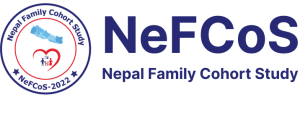
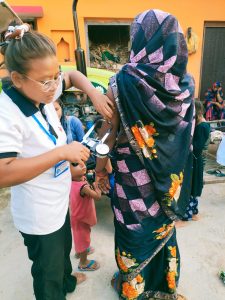
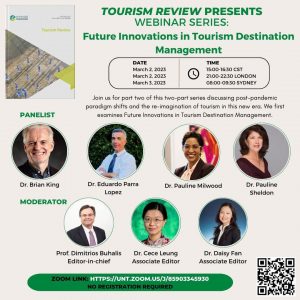


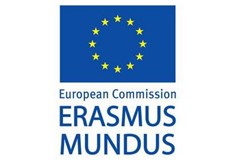
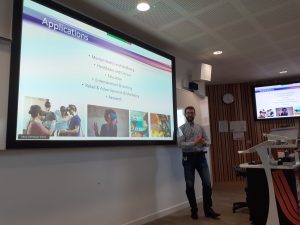
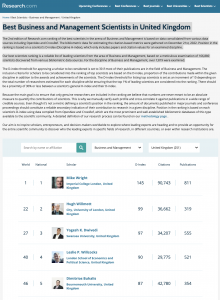
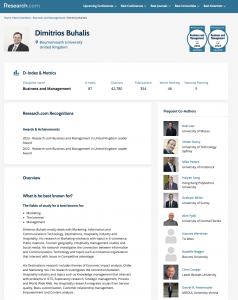
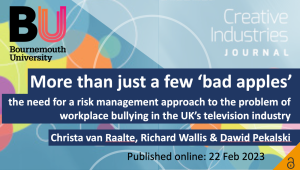 18-months ago we published
18-months ago we published 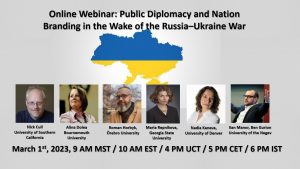


 What are Funding Development Briefings?
What are Funding Development Briefings?
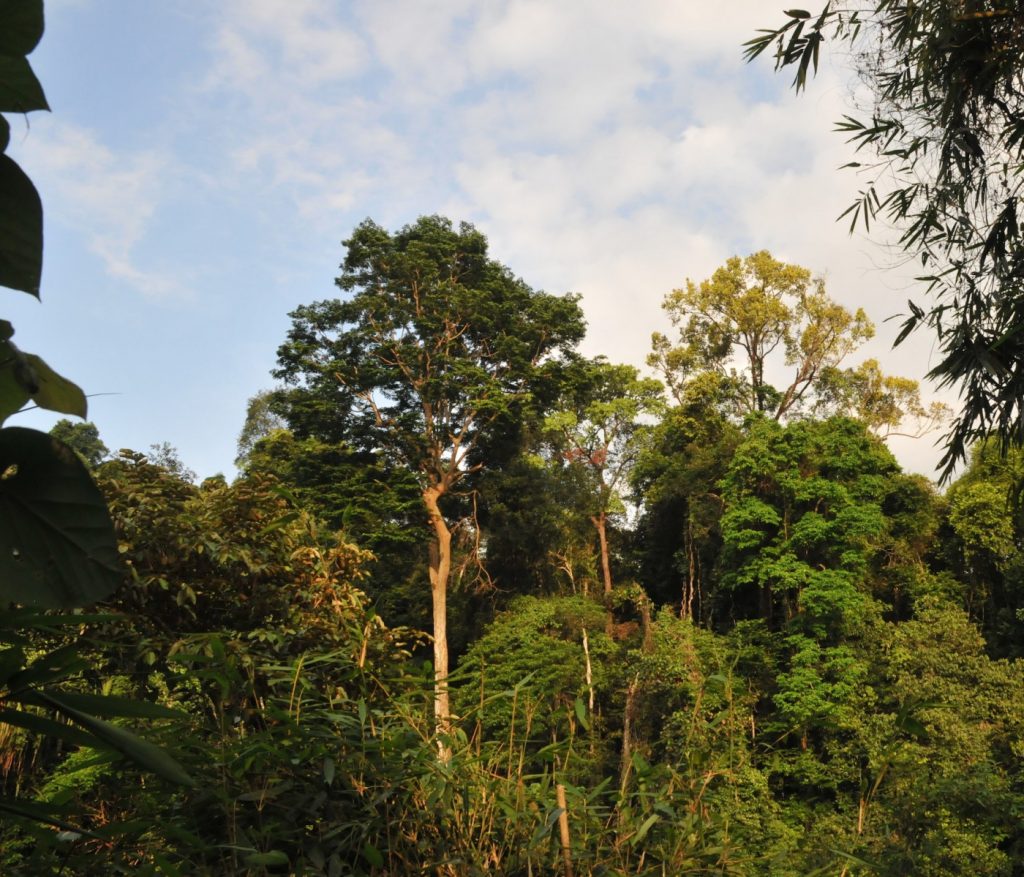
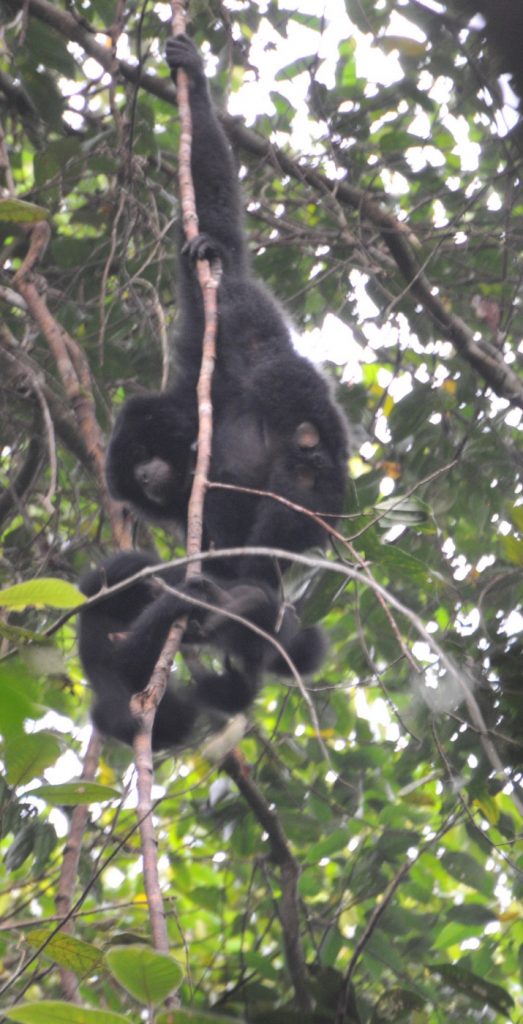
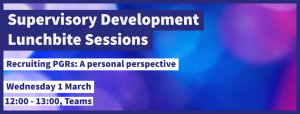
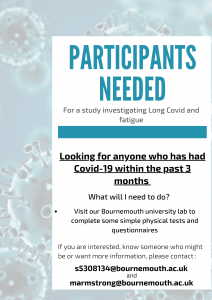











 New Nepal scoping review on maternal & neonatal health
New Nepal scoping review on maternal & neonatal health Fourth INRC Symposium: From Clinical Applications to Neuro-Inspired Computation
Fourth INRC Symposium: From Clinical Applications to Neuro-Inspired Computation Writing policy briefs
Writing policy briefs Upholding Excellence: The Concordat to Support Research Integrity
Upholding Excellence: The Concordat to Support Research Integrity ECR Funding Open Call: Research Culture & Community Grant – Application Deadline Friday 12 December
ECR Funding Open Call: Research Culture & Community Grant – Application Deadline Friday 12 December MSCA Postdoctoral Fellowships 2025 Call
MSCA Postdoctoral Fellowships 2025 Call ERC Advanced Grant 2025 Webinar
ERC Advanced Grant 2025 Webinar Horizon Europe Work Programme 2025 Published
Horizon Europe Work Programme 2025 Published Horizon Europe 2025 Work Programme pre-Published
Horizon Europe 2025 Work Programme pre-Published Update on UKRO services
Update on UKRO services European research project exploring use of ‘virtual twins’ to better manage metabolic associated fatty liver disease
European research project exploring use of ‘virtual twins’ to better manage metabolic associated fatty liver disease